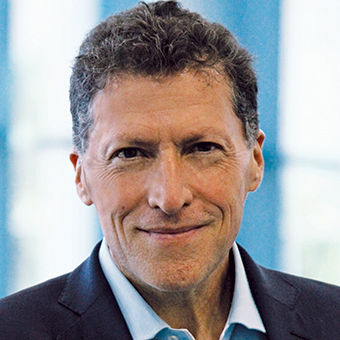
Last week I wrote about a remarkable initiative, Education for All (EFA), created by brothers Mike and Chris McHugo, who operate Kasbah du Toubkal, a hotel in Morocco’s Atlas Mountains. EFA assists rural Moroccan girls in remote villages by building boarding houses near secondary schools to enable the children to continue their education.
I noted that the hotel’s owners planned to attend the hosted buyer show Pure, which was scheduled to be held in Marrakech this week.
While the details in the article demonstrating how to build an effective travel-industry nonprofit remain valid, nature has once again reminded us that our path toward the future is unknowable. A 6.8-magnitude earthquake rocked the area two days after the article was posted online.
Regarding the earthquake, a journalist based in the region told the New York Times, “It didn’t last long, but it felt like years.”
In those short moments of trembling, lives changed. As soon as I read about it, I reached out to the McHugos; their hotel is not far from the epicenter. Both were on-site when the quake occurred. “All guests, staff and their families are OK. Building not so well,” Chris wrote back.
The property is closed for the time being.
The six EFA boarding houses were also in the vicinity of the epicenter, and all suffered damage, some severe. No students were in the houses; they were in their villages, still on summer break.
Which is not to say they are safe. Sofia Omar, EFA’s CEO, said on the nonprofit’s Instagram account that communications with the girls’ villages are very difficult: telephone lines are down, and roads to many are blocked. The organization, assisted by the programs’ alumni, is creating a list of the students’ status when it can be confirmed. Due to the remoteness of some of the villages, it’s slow going.
The housemothers who run the boarding houses are safe, Omar said.
Lives have changed, but not necessarily goals. EFA plans to rebuild and refurnish the boarding houses, though the focus for the moment is on bringing relief to the girls’ home villages, many of which are in desperate need of food, water and medical supplies.
Photos of the damage to the boarding houses as well as some from the girls’ villages can be seen on the organization’s Instagram account, and a link to make a donation to help is in the page’s bio. I hope you will join me in making a contribution.
The travel industry has by necessity developed a strong competency in responding to crises and is currently a leader in aid efforts in Morocco. Although Pure, which was to begin two days after the quake, was canceled, many attendees had already arrived at the destination. Pure’s organizer, This Is Beyond, quickly put together an earthquake relief event for those who had arrived, not only to raise money and collect food donations but to generate ideas about how to support Morocco for the long term.
Juliet Kinsman, an industry consultant whose documentary, “Changing Worlds in the Atlas Mountains,” chronicles the origins of EFA, organized an event in London to raise money.
I’m currently at the Adventure Travel Trade Association (ATTA) World Summit in Sapporo, Japan, and the crisis half a world away is on the minds of many attendees. ATTA CEO Shannon Stowell opened the conference acknowledging the tragedy, saying that the organization was “working on plans to do what we can as a community.”
In one summit workshop, it was noted that Abercrombie & Kent was on the ground in Morocco, moving supplies into devastated areas.
In Sapporo, I had dinner with Intrepid Travel executive chairman Darrell Wade. Intrepid announced it would match up to $64,150 dollars to EFA and the High Atlas Foundation in donations it solicited from travel advisors and former guests. At press time, the match threshold was more than met: Intrepid and its network had raised $260,000.
I asked Wade whether he feels the industry as a whole does a good job of rallying assistance in times of crisis.
“To be honest, I have mixed feelings,” he responded. “At a rhetorical level, we say all the right things; we’re full of compassion, we have friends in Morocco; or, insert any country. But at a practical level, do we all do enough? Morocco right now needs emergency shelter, it needs to rebuild schools, hospitals and homes. Basically, it needs cash, and it needs it urgently.
“In our case, we started an appeal, and the public has really responded. Efforts don’t fall on deaf ears. The traveling public cares and will respond to a call for help. We should all do more to support the destinations that we all make a living off of.”
In essence, Wade suggests that customers and partners may be more willing to help than might be assumed. Morocco is asking you to test his belief.
Source: Read Full Article










